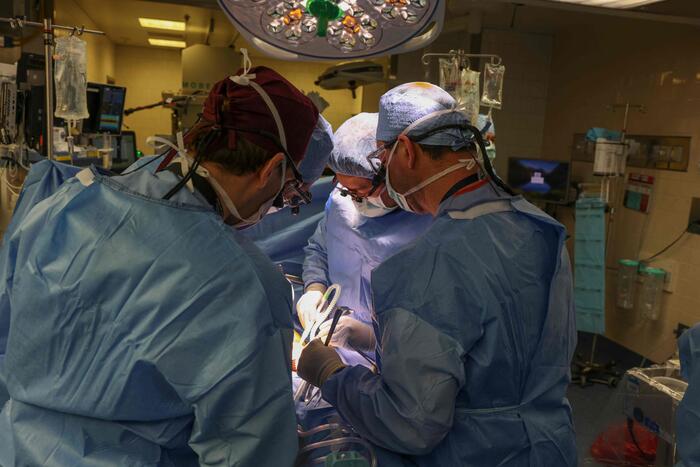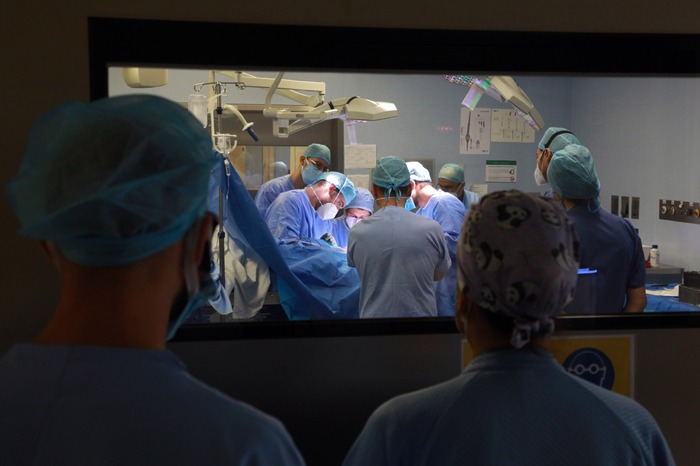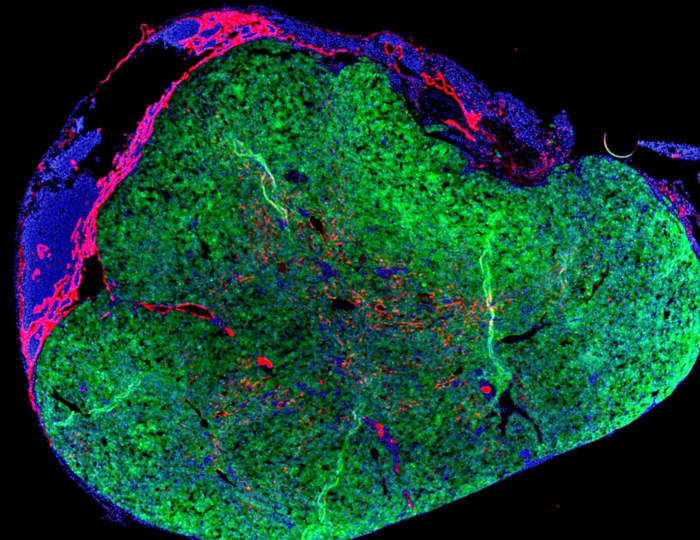This is a world first.
US surgeons have successfully transplanted a heart from a genetically modified pig into a human patient, the University of Maryland School of Medicine said on Monday.
The operation was carried out on Friday and showed for the first time that an animal heart could continue to function inside a human without immediate rejection, the institution said in a statement.
David Bennett, 57, right in the photo, was doomed to die without a transplant in the last chance of a genetically modified pig heart.
Here he is with his surgeon (masked) and the famous heart (photos distributed by the University of Maryland School of Medicine) pic.twitter.com/bgZtiqRZ53
- Sébastien Blanc (@sebastienblanc) January 10, 2022
The 57-year-old David Bennett, who has life-threatening heart disease, had a heart transplant from a genetically modified pig last Friday after an eight-hour operation.
This breakthrough in medicine gives hope to hundreds of thousands of organ failure patients around the world, as animal transplants could dramatically reduce wait times for organ donation in the future.
"It works and it looks normal"
According to surgeons at the University of Maryland Medical Center, David Bennett was doing well on Monday, three days after the operation.
“It works and it looks normal.
We are delighted, but we do not know what tomorrow will bring us.
It's never been done before, ”Dr. Bartley Griffith, director of the medical centre's heart transplant program, who performed the operation, told The New York Times.
Read also Transplantation of a pig kidney into humans: a crucial first step
“It was either death or this transplant.
I want to live.
I know it's pretty hit and miss, but it was my last option, ”the Maryland resident said a day before his operation, according to the medical school.
“I can't wait to be able to get out of bed once I'm well,” continued the patient, who has spent the last few months bedridden and hooked up to a machine that kept him alive.
It was finally on New Year's Eve that the United States Medicines Agency (FDA) gave the green light to the operation.
Patient's condition still uncertain
David Benett's vital prognosis remains uncertain, however, the New York Times notes.
If the heart, which is still connected to a bypass machine, is stable at this time, the patient is closely monitored for signs that their body is rejecting the new organ, although the first 48 hours are the most critical.
Several risks of infections are also monitored, including the porcine retrovirus, which can be transmitted to humans, although the risk is considered low.
Read also Organ donation: why nearly one in two people refuse to donate in Ile-de-France
The pig the heart comes from has been genetically modified to no longer produce a type of sugar that is normally present in all pig cells and that causes immediate rejection of the organ. This genetic modification was made by the company Revivicor, which also provided a pig kidney that surgeons had successfully connected to the blood vessels of a brain-dead patient in New York in October.
Nearly 110,000 Americans are currently on the waiting list for organ transplants and more than 6,000 people who need transplants die each year in the country.
Xenografts, from animal to human, are not new.
Doctors have attempted cross-species transplants since at least the 17th century, with the earliest experiments focusing on primates.
In 1984, a baboon's heart was transplanted into a baby, but the little one, nicknamed "Baby Fae", only survived 20 days.









